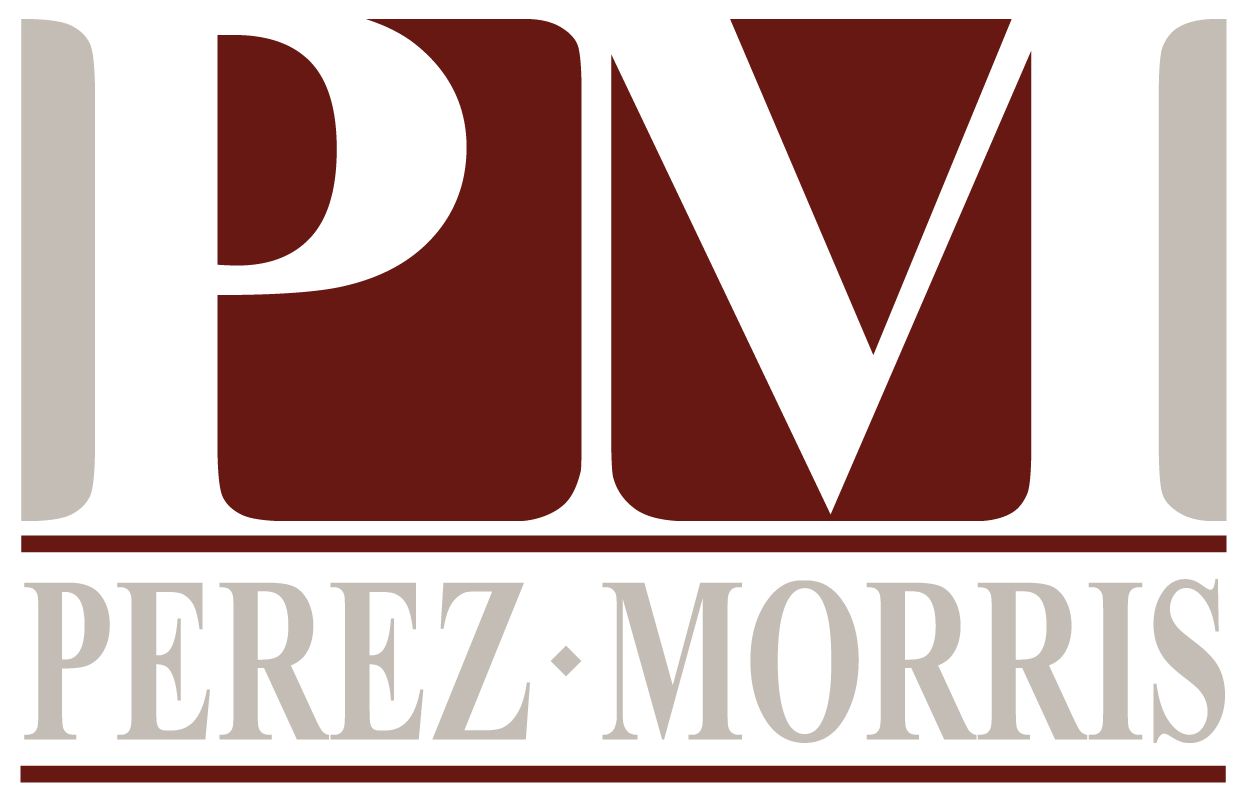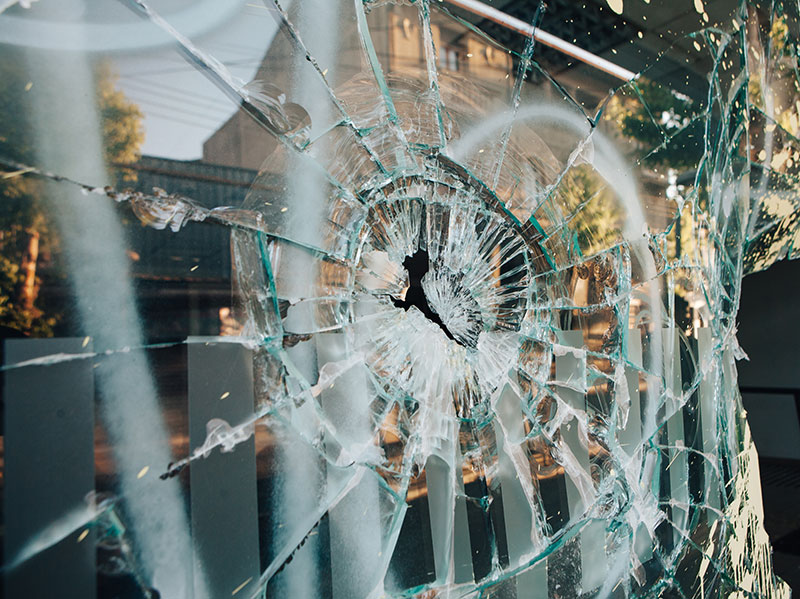Businesses and business owners have been hit hard in recent months. The COVID-19 pandemic forced closures and altered the way most businesses operate to varying degrees. Just as many cities were beginning to reopen, civil unrest, including riots and looting, have left many commercial entities with significant property and economic damage. As businesses assess and address the damage and turn towards rebuilding, below are considerations and possible avenues for loss recovery.
- Insurance
Insurance coverage is the most obvious source of recovery for property damage from riots or civil unrest. Many commercial, business, auto, and home property and casualty insurance policies cover damage to property caused by fire, explosions, riots or civil commotion, vandalism, theft, or malicious mischief. Potential sources for coverage include:
- Federally funded plans;
- Private P&C coverage;
- Motorists insurance if vehicles are damaged; and
- Commercial Business Owners policies which may provide coverage for loss due to civil disturbances, riots, theft, loss of inventory, and business interruptions.
Recovery under any policy of insurance will be subject to the terms of each policy holder’s individual coverage, applicable deductibles, and some policies may not cover the types of losses sustained during riots. While insurance coverage is the most likely source of recovery to provide reimbursement and compensation for losses, businesses must also take into consideration the impact on future policy premiums when submitting claims. Additionally, for businesses which self-insure, this is not a viable source of recovery.
- Individuals
Another potential source of recovery is from the individual(s) who physically caused the damage. In certain limited circumstances, entities may also pursue claims against the organizer(s) of the protest or action for the unlawful conduct of others who carried out the destruction.[1] However, there are practical roadblocks in pursuing recovery from individuals. Challenges related to identification of the perpetrator(s), costs associated with investigating and pursuing potentially numerous claims, issues of proof, and concerns related to collectability make claims against individuals a likely difficult and costly avenue from which to recoup losses. With the improvement of facial recognition technology, surveillance (both private and through local or federal agencies), social media, pervasiveness of media coverage, and the assistance of local and national law enforcement, individuals who caused property damaged may be able to be identified and pursued civilly. However, the resources necessary to identify or pursue claims against individuals may exceed potential recovery.
If criminal action is taken by the state against an individual, entities can also, or alternatively, rely on the governmental investigation and seek restitution through the criminal proceeding. Again though, with damage largely being caused in riot settings, where numerous potential perpetrators are present, governmental agencies may elect not to prosecute or investigate claims. Moreover, individual state compensation and restitution schemes may limit the amount recoverable.
The federal government allows all U.S. states and territories to apply for the Crime Victims Compensation program, however, it generally excludes theft, damage, and property loss recovery.[2] Individual states also offer crime victim compensation funds which may be an additional source for recovery, although it is common for these funds to exclude or limit payment for property expenses. For example, Ohio’s Crime Victims Compensation program excludes payments for stolen, damaged, or lost property, but allows reimbursement for certain aspects of crime scene cleanup.[3] New York’s program allows for certain property damage compensation up to $500, and crime scene cleanup reimbursement up to $2,500.[4]
Some of the states hardest hit by looting and rioting have statutes barring compensation for criminal property damage. In Minnesota, the Crime Victims Compensation Program provides for crime scene cleanup reimbursement, but only for crimes involving personal injury; property crimes are not covered.[5] Georgia compensates victims of gang-related, graffiti property damage, however, it does not otherwise compensate victims of property loss crimes.[6] Likewise, in Washington, the Crime Victims Program will not pay for crime scene cleanup or the loss of property.[7] In Illinois, damaged locks and windows may be compensable under certain situations, however, a victim must exhaust insurance coverage prior to seeking reimbursement from the Illinois Crime Victims Compensation Program.[8]
In contemplating whether to pursue individuals or organizers of politically charged protests, either civilly or criminally, businesses should also take into account the public relation impact of pursuing these actions given the ever-increasing impact of social media commentary on brand reputation.
- Third Parties
Entities may also turn to third parties to seek recovery for some or all of the damage incurred. While each state varies in its applicable causes of action, the basis for claims may arise from the contract between the parties, common law and statutory indemnification actions, and common law and statutory contribution actions. Potentially liable third parties include:
- Landlord;
- Vendors;
- Neighboring tenants or owners;
- Property management;
- Security;
- Operations management.
Lease agreements with landlords and service agreements with vendors, security companies, property management companies, and operations management staff may provide a contractual basis for recovery. Many applicable contracts include indemnification provisions, allotting the financial responsibility to remedy damage to the property to one party. Common law and statutory indemnification and contribution actions can also provide means to obtain reimbursement from those who owe certain duties under the law to others, such as neighboring tenants or adjacent property owners.
- Government Immunity
As with individuals, pursuing government actors or the state itself to recovery losses may prove to be an uphill battle. Some states may permit claims against the State, municipalities, and/or political subdivisions within the state, under several theories, including contract, quasi-contract, and tort. If such actions are permitted, which is a state-by-state inquiry, there are several other factors to consider, including individual statute of limitations, notice and form requirements, consent requirements, applicable damages caps, and principles of absolute immunity, qualified immunity, or other affirmative defenses the state, municipality or political subdivision may raise.
If damage to the property was incurred because of the actions of government employees, most states provide immunity from suit for damages if the government employee was enforcing, or failed to enforce, a statute or regulation. In other words, if an officer caused damage to a business’ property while carrying out the applicable laws, they are shielded from a suit for those damages.
Further, some states specifically ban actions against the state for damage resulting from riots. For example, under Georgia law, the state cannot be held liable for damages from civil disturbance, riot, insurrection, or rebellion or the failure to provide, or the method of providing, law enforcement, police, or fire protection.[9] Others have statutes allowing liability. New York’s municipal law provides that under certain circumstances, a city or county will be liable for property which is destroyed or injured by a mob or riot.[10]
- State or Local Funds/State of Emergency
Federal aid for recovery is unlikely since the Supreme Court ruling in Louisiana ex rel. Folsom v. New Orleans, holding the individual states have the ability to create statutes granting such relief. “The right to reimbursement for damages caused by a mob or riotous assemblage of people is not founded upon any contract between the city and the sufferers. Its liability for the damages is created by a law of the legislature, and can be withdrawn or limited at its pleasure.”[11] Thus, if government aid is provided it will likely come from the states.[12]
States may choose to enact legislation in response to the unrest. There are already state emergency orders and executive orders in response to the unrest which may allot funds for managing and recovering from the damage, including property damage. For example, Virginia Executive Order 64 authorizes up to $350,000 in state funds for state and local response to the emergency, which was implemented in part, to “restore order,….[and] protect property.”[13] It remains unclear whether these funds will be made available to private entities or citizens to remedy the property damage suffered by business owners.
At least one state has already proposed legislation directly targeting the businesses damaged or destroyed because of the protests. Minnesota law makers introduced the Promise Act on June 15, 2020 which “include[s] $125 million in cash from the state’s general fund for immediate grants and loans to business owners….to help the riot-damaged areas.”[14]
However, even if a state enacts legislation in response to civil unrest and rioting, it is unlikely property owners will see immediate aid, and may not fully be made whole. The legislative process can be cumbersome to navigate and slow to act, and funds, once available, may be allocated and exhausted quickly.
Individual cities are also acting to create their own funds. City led initiatives can often be implemented more quickly than state-wide measures. Birmingham, for example, announced the Birmingham Business Relief Fund which supports small businesses damaged during the unrest.[15]
- Private Relief Organizations
Some private organizations may offer businesses assistance and fill the void left by other recovery options, although most private organizations offering recovery assistance tend to operate as charity organizations targeting assistance to small businesses or those most harmed by the rioting. These funds generally operate as “grassroot” opportunities for aid, may have specific threshold requirements or unique criteria for qualifying for assistance, and are typically exhausted quickly.
Likewise, local social groups are initiating efforts to aid their cities and communities. In Chicago, a group called My Block, My Hood, My City is collecting donations to support business owners who suffered property damage at the hands of looters.[16] Some local Chamber of Commerce groups have set up individual funds on crowdsourcing sites as well.[17] Individual businesses can also establish their own crowdfunding request within the parameters of the crowdfunding platform’s guidelines. Also, local groups may offer business loans or grants to aid in relief efforts.[18] It remains unclear the extent to which crowdfunded or charity aid will be provided to larger businesses or corporations, but may offer immediate relief for smaller entities, franchises, or independently-owned locations.
- Toolkit for Businesses
Securing the immediate assessment of the damage, cleaning up, and rebuilding can be overwhelming and difficult tasks. To ease the process, the following steps outline the essential factors to consider when evaluating the damage:
- Report all damage and loss to law enforcement;
- Report all damage and loss to applicable insurance carriers and landlord;
- Retain and preserve all evidence of loss, including any surveillance footage, photographs, video of damage, social media posts showing the riot, looting, or unrest at or near the property; records of lost profits, cleanup and security expenses, inventory, and documentation of repairs;
- Cooperate fully with all requests of law enforcement, insurers, and/or landlords and maintain records of communications;
- Take all reasonable steps to secure the premises and protect remaining supplies and inventory;
- Ensure a policy or unified plan is in place and communicated to appropriate staff members to address various potential public relation issues, such media inquiries, social media posts, employee communication with the public, messaging to employees, etc.
- Conclusion
Businesses across the country are facing the daunting task of rebuilding after widespread property damage and economic loss caused by rioters, protesters, and looters. There are several potential avenues for recovery or reimbursement for the costs associated with these losses. The most likely source of relief will come from insurance policies. However, businesses can turn to individuals for restitution or reimbursement, as well as third parties with whom the business had a relationship either through contract or by operation of law. Similarly, some states may allow for suits against the state, city, municipality, or government actors under certain conditions. State and local aid may be allocated through pending or future legislation to provide assistance in repairing and rebuilding after the civil unrest. Finally, private, charity, and crowdsourcing funding in the form of charitable relief, grants, or loans may be made available to help business recover. In all, businesses should explore all potential sources of relief to ensure they are made whole from this destruction. Please contact us at contact@perez-morris.com to discuss business- and state-specific options.
_______________________________
The information provided in this article does not and is not intended to constitute legal advice. Instead, all information, content, and material in this survey is for general informational purposes only. Information in this article may not constitute the most up-to-date legal or other information.
Please contact Perez & Morris, LLC at (614) 431-1500 for specific applicability of this information to your property.
[1] Three theories may justify holding an organizer liable for the unlawful conduct of others. First, a finding that the organizer authorized, directed, or ratified specific tortious activity would justify holding them individually responsible for the consequences of that activity. Second, a finding that the organizer’s public speeches were likely to incite lawless action could justify individual liability for unlawful conduct that in fact followed within a reasonable period. Third, the speeches might be taken as evidence the organizer gave other specific instructions to carry out violent acts or threats. See NAACP v. Claiborne Hardware Co., 458 U.S. 886, 927, 102 S. Ct. 3409, 3433, 73 L. Ed. 2d 1215 (1982).
[2] State Crime Victims Compensation, Benefits.gov, https://www.benefits.gov/benefit/4416 (last visited June 19, 2020).
[3] Crime Victims Compensation Guidelines, Ohio Attorney General, https://www.ohioattorneygeneral.gov/Individuals-and-Families/Victims/Apply-for-Victims-Compensation/Crime-Victims-Compensation-Guidelines (last visited June 19, 2020).
[4] General FAQ, Office of Victim Services, New York State, https://ovs.ny.gov/faq (last visited June 19, 2020).
[5] Crime Victims Reparations Board, Minnesota Dep’t. of Public Safet0y, https://dps.mn.gov/divisions/ojp/help-for-crime-victims/Pages/crime-victims-reparations.aspx#:~:text=Our%20mission%20is%20to%20reduce,of%20restitution%20and%20civil%20awards (last visited July 13, 2020).
[6] Ga. Code. Ann. § 17-15-7 (1981); Ga. Code. Ann. § 17-15A-3 (1981).
[7] Crime Victims Claims, Washington State Dep’t of Labor & Industries, https://lni.wa.gov/claims/crime-victim-claims/who-can-file-and-what-is-covered#what-are-the-benefits (last visited July 13, 2020).
[8] Crime Victims Compensation: Frequently Asked Questions, Illinois Attorney General, https://ag.state.il.us/victims/CV_FAQ_0619.pdf (last visited July 13, 2020).
[9] Ga. Code. Ann. § 50-21-24.
[10] N.Y. Gen. Mun. Law § 71.
[11] Louisiana ex Rel. Folsom v. Mayor of New Orleans, 109 U.S. 285, 287 (1883).
[12] See, e.g., “We do not offer assistance for small businesses impacted by a presidentially-declared disaster.” Individual Disaster Assistance, FEMA https://www.fema.gov/individual-disaster-assistance (last visited June 19, 2020) (denying FEMA relief for COVID-19 related expenses). After the 2015 riots in Baltimore, FEMA declared federal aid for riot recovery “is not appropriate for this event.” Andrea McDaniels, Federal Government Denies Disaster Baltimore Riot Aid Again, The Baltimore Sun, Jul. 30, 2015 https://www.baltimoresun.com/news/crime/bs-md-fema-denial-20150730-story.html.
[13] Carol Vaughn, Governor Declares Emergency in Wake of George Floyd Protest; Shore Organizers Plan Peaceful Rallies, Eastern Shore Post, June 1, 2020 https://www.easternshorepost.com/2020/06/01/governor-declares-state-of-emergency-in-wake-of-civil-unrest-in-george-floyd-protests/.
[14] Jessie Van Berkel, DFL Proposes $300M for Riot-Damages Businesses in Minneapolis, St. Paul, Star Tribune, June 15, 2020 https://www.startribune.com/dfl-proposes-300m-for-riot-damaged-businesses-in-minneapolis-st-paul/571277972/.
[15] New Fund Launched to Aid Small Business Impacted by Sunday Unrest: Here’s How You Can Help, Birmingham B. J., June 1, 2020 https://www.bizjournals.com/birmingham/news/2020/06/01/fund-launched-small-business-impact.html.
[16] Small Business Relief Fund, My Block, My Hood, My City https://www.formyblock.org/ (last visited June 19, 2020) (“Out-of-state looters have taken hammers and batons to our communities, breaking windows of small businesses and spraying graffiti, using this crisis as an opportunity to tear down black communities. Funds raised will go to support our ongoing operations and efforts to repair small businesses.”).
[17] See, e.g., Brittany Meiling, This is My Stuff! That’s My Business! La Mesa Business Owner Confronts Looters During Riots, San Diego Trubune, June 1, 2020 https://www.sandiegouniontribune.com/business/story/2020-06-01/la-mesa-small-business-riots-vandalism (“The East County Chamber of Commerce has set up a GoFundMe page to help support small- business owners affected by the riots.”).
[18] After the 2015 riots in Baltimore, the Baltimore Development Corp. made loans and grants available to business to repair property damage. See Yvonne Wenger, Unrest Will Cost City $20 Million, Officials Estimate, The Baltimore Sun, May 26, 2015 https://www.baltimoresun.com/maryland/baltimore-city/bs-md-ci-unrest-cost-20150526-story.html (the Baltimore Development Corp. offered “grants up to $5,000 and zero-interest loans of up to $35,000” to business for property damage repair).

Rebecca Johnson concentrates her practice in the areas of complex commercial litigation and construction matters, property and casualty litigation, general liability claims investigation and litigation, malpractice defense, and workers’ compensation matters. She is a trial lawyer with experience defending companies and individuals in general liability and complex litigation matters. Rebecca has experience in all aspects of the litigation process from inception to disposition, including pleadings and discovery preparation, depositions, motion practice, case valuation, pretrial management, and trial.
Before becoming an attorney, Rebecca gained a decade of experience in business management, business practices, and corporate growth, development, and formation strategies. Read more

Amanda joined the firm as an attorney in 2018. Her practice areas include employment, commercial litigation, transactional matters, property, coverage and transportation. Prior to joining the firm, Amanda was a law clerk for a Columbus-based Fortune 500 company in its trial division, and was also a legal intern for the Federal Communications Commission’s Enforcement Bureau in Washington, D.C. She served as a judicial extern to the Honorable Chief Judge Edmund A. Sargus, Jr. on the United States District Court for the Southern District of Ohio and assisted clients as a Certified Legal Intern in Moritz’s Civil Law Clinic.
Prior to attending law school, Amanda spent three years at Perez Morris assisting attorneys in all practice areas. Amanda graduated from The Ohio State University in 2012 with a Bachelor of Science degree in Human Ecology Read more

